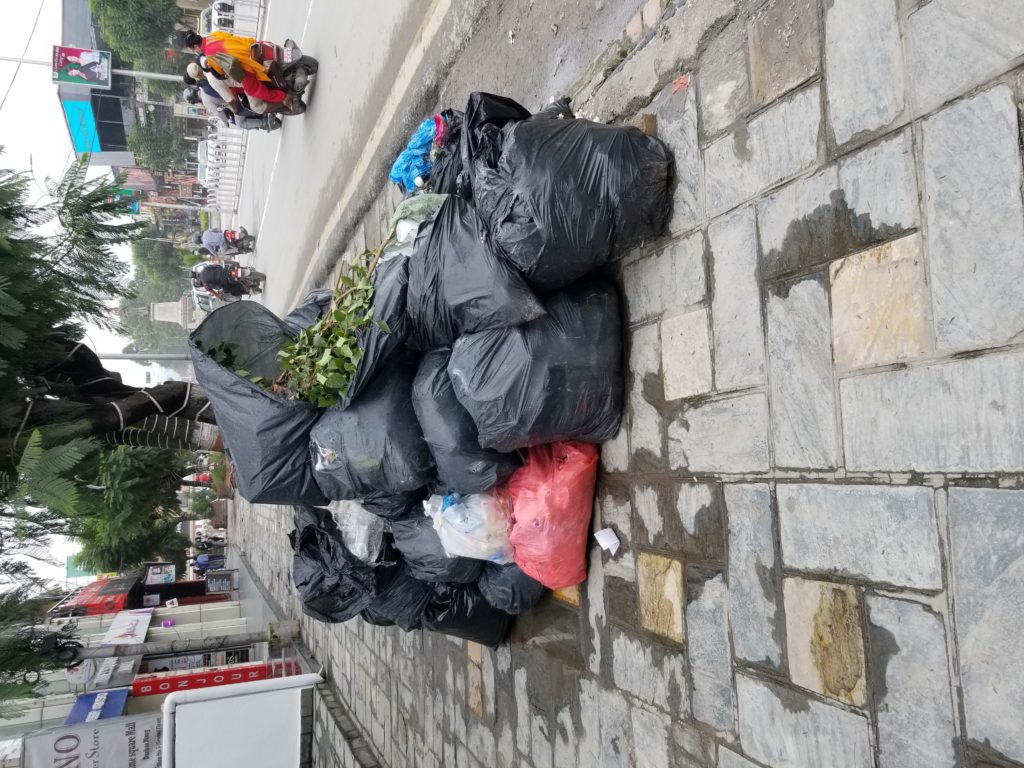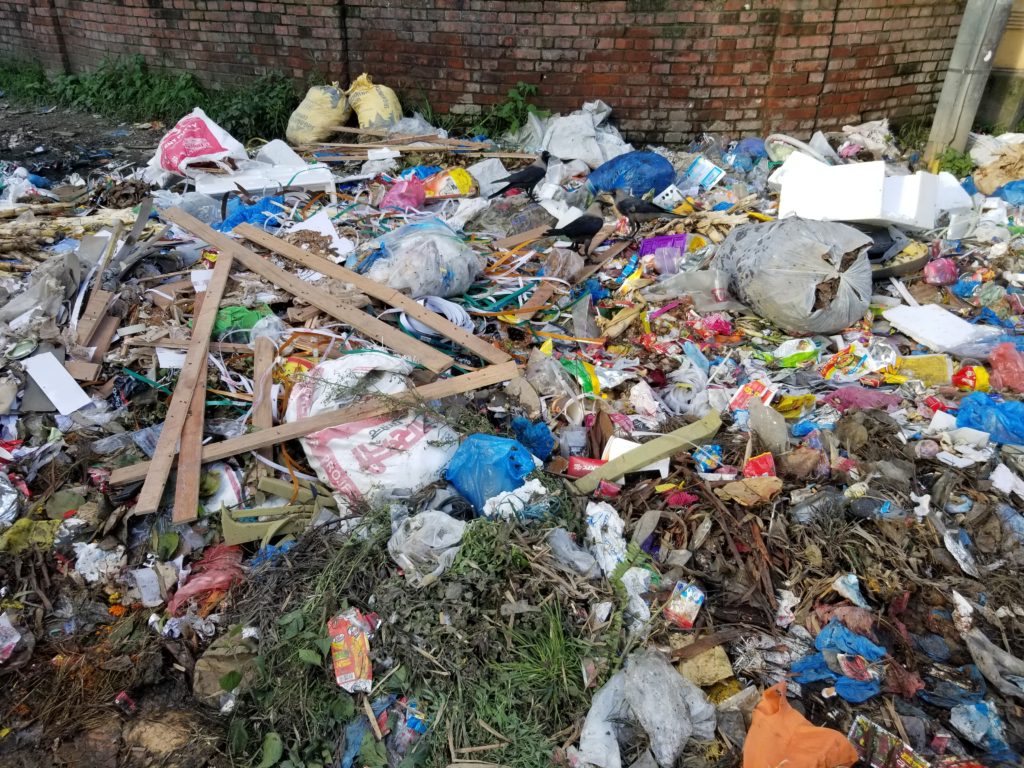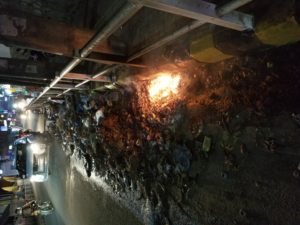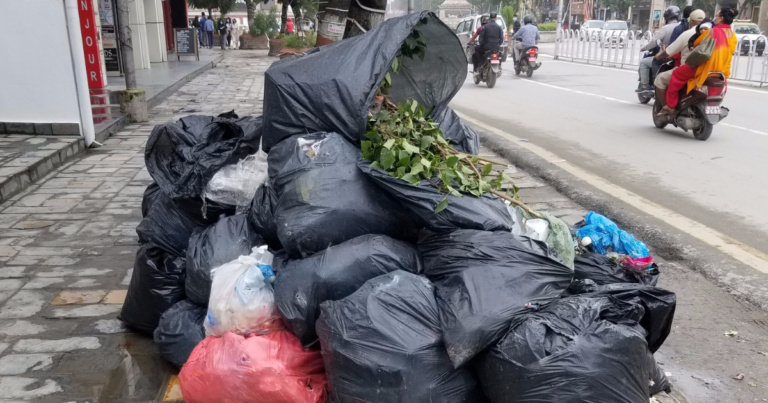The news that got some mileage in the social media was about some aware and irate citizens dumping a pile of trash at the gate of Nagarpalika office.
Just as the mayor, similar are the citizen. This may sound a little crude when first encountered, but it is a Nepali saying. The truth is that the mayor of Kathamandu and its citizens complement each other very well. It just fits perfectly.
The mainstream newspapers are also screaming about the rising piles of litter in the streets of Kathmandu. As reported in the Nayapatrika news, trash has been piling up because the municipality has not been able to pick them up for the past 25 days. Since the local government of Kathmandu has been irresponsible and incapable to fulfill its basic task, the activists have geared up to transport the trash on their own. Such initiatives are admirable, but is that the right solution? Obviously not. Check this comment by a responsible and compassionate citizen Yogendra Tamang: “एक चोटि सबैजना महानगरपालिका ले फोहोर फाल्ने ठाँउ सिस्टाेल जाउ । अनि सबैलाई थाहा हुन्छ तेहाका मान्छे कति हेपिएका अनि पिल्सिएका छन भनेर ।“

Suppose there were equally determined activists in Sisdol, where the trash have been dumped, would they not block taking the trash of Kathmandu in their area and suffer the consequence? So, clearly the activists, the government and the people all have misguided ideas about waste management.
The solution is obvious because they even made placards with the sign that “I will not litter my country.” It is the best solution to all our waste problem. If each individual stopped littering and act responsibly to manage their own waste, then the streets would be clean most of the time.
One comment pointed to the practice he was doing himself of not producing waste, but using it to make compost and making a garden in the balcony and roof. That is what every citizen should be doing as the starting point of waste management. But Nepal is Nepal because practicing responsibility is not the norm, blaming is . Being responsible is superseded by asking for rights. Looking at the comments, this point is amply proven. People are suggesting options like, Why not take the trash right in his office? or Why not shoot the mayor? Or “Great work guys, why not come to Banepa too and give our trash to our mayor?

As I love to teach in my motivation session, there are no wastes. Everything can be used somewhere else. It depends on how smart you are in finding where to use. For instance, when I have paper wraps I save them and use them to wipe dirt off the table or chairs when they become sullied. Similarly, if citizens are taught from childhood to be highly aware of anti-littering and being responsible to segregate the waste, then the municipality or private companies can actually generate employment and revenue from the waste.

At this point I remember watching an interview once in YouTube. An ordinary citizen was complaining that the municipality does not authorize them to collect trash and sort them for profit. They had all the ideas needed to deal with that problem. There was another story about a girl who had returned from the US and she had started a campaign to collect bottles from the homes so that they would not end up on the streets. She ended up making the task easier for people who collected empty bottles.
So the main problem lies in basic South Asian civilization that is apathetic to the problems created by littering and oblivious to the profit potential with proper management.
As for the mayor, does he deserve this treatment? I would say it is all Karma. What he has given to the Kathmanduites, he has received in kind.
The writer is a graduate of Arizona State University in Political Science. He is working as a social activist and motivational speaker for students across Nepal since 2007. He has how own blog “Strong Nepal.”
The views and opinions expressed in this article are those of the author and do not necessarily reflect the official policy or position of Nepalisite.






















